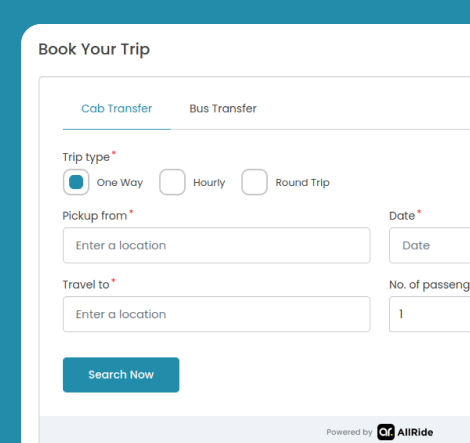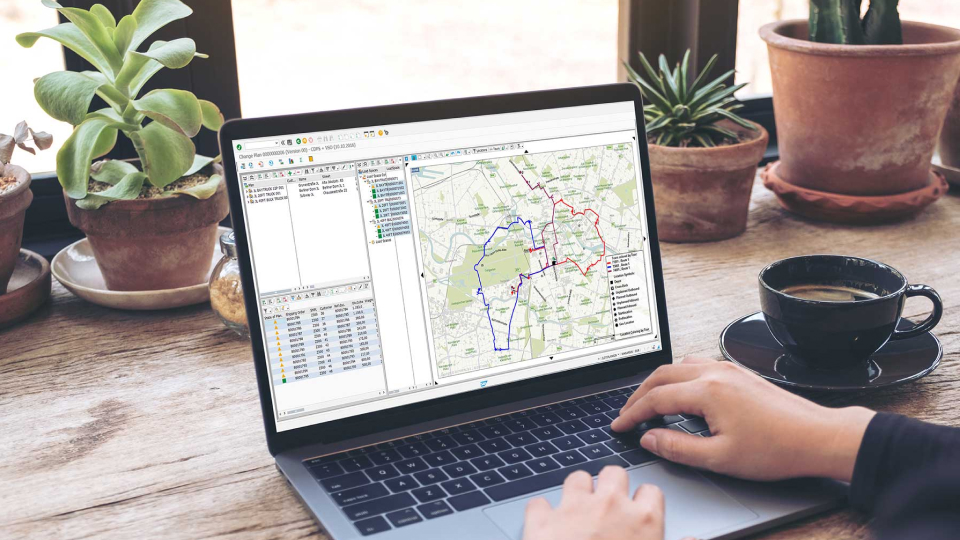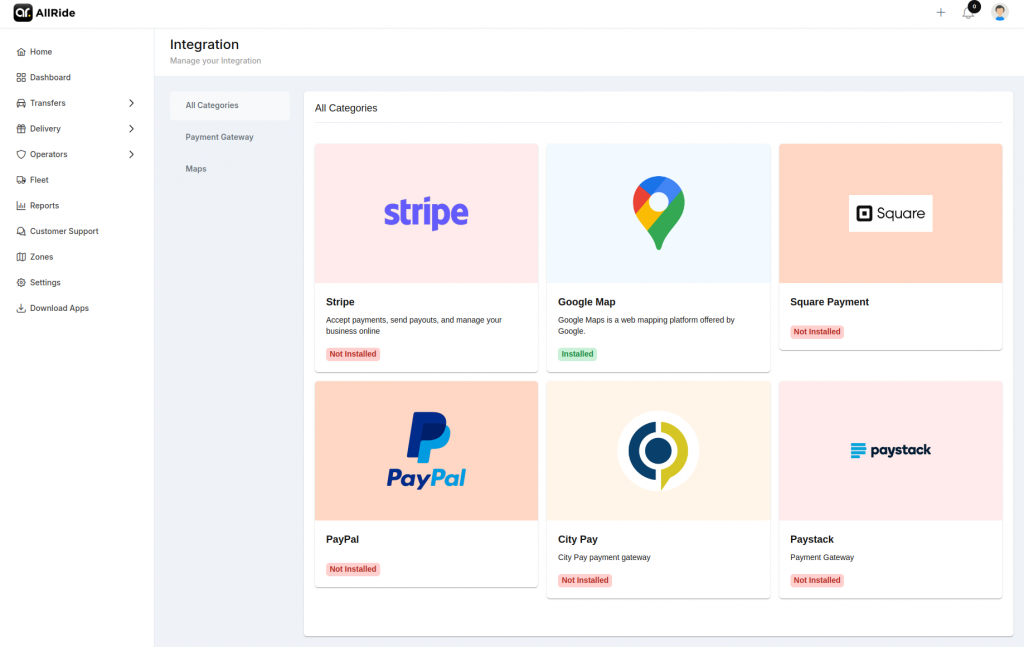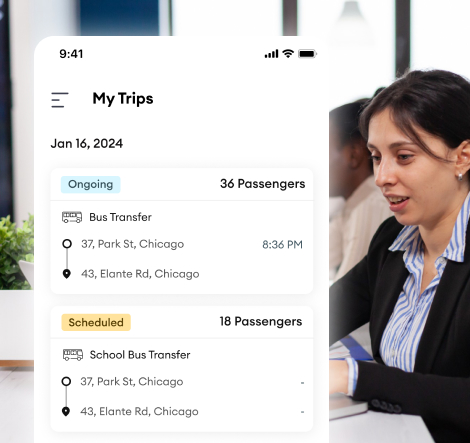
10 Key Features to Look for in a Bus Tour Software
Running a successful bus tour business today isn’t just about having great destinations — it’s about delivering a seamless, tech-powered experience from the moment a customer books a tour to the moment they step off the bus. According to a study, Artificial Intelligence and Machine Learning occupied nearly two-thirds of all deals since 2018. As the tourism industry evolves, travelers expect convenience, real-time updates, easy payments, and personalized service. That’s where bus tour software comes in — helping operators manage bookings, routes, vehicles, payments, and customer communication all in one place.

However, not all solutions are built the same. Whether you’re just starting out or scaling your operations, choosing the right software can make or break your efficiency and customer satisfaction. In this article, we’ll walk you through the 10 key features every tour operator should look for in a bus tour online booking software — so you can focus less on logistics and more on delivering unforgettable travel experiences.
What is Bus Tour Online Booking Software?
An advanced bus tour software solution is designed to help tour operators, charter bus companies, and coach tour operators streamline their business operations, including online booking, scheduling, ticketing, and customer interaction.

Key Features of Bus Booking Software for Tours
The emergence of modern technology has empowered bus scheduling software for tours with multiple advanced features. Some of the key features are listed below :
1. Real-Time Booking & Reservations
In today’s fast-paced world, travelers expect instant confirmation when booking a tour. Real-time booking and reservation capabilities ensure that customers can :
A. View up-to-date availability
B. Reserve their seats on the spot,
C. Receive instant confirmations

All these the customers can do without back-and-forth emails or phone calls. For tour operators, this means fewer manual entries, reduced double bookings, and smoother operations. Moreover, the bus tour online reservation software includes a mobile-friendly interface. Therefore, bookings can happen anytime, anywhere. It’s all about convenience, both for you and your passengers.
2. Dynamic Scheduling & Route Management
Managing multiple tours, routes, and time slots can get chaotic without the right tools. Bus tour software with dynamic scheduling and route management lets you plan, adjust, and optimize routes with ease — whether you’re handling daily city tours or multi-day excursions.
Need to reschedule due to weather or low bookings? The system should allow quick updates that instantly reflect across driver and customer apps.
Live GPS tracking adds another layer of control, helping you monitor vehicle locations in real-time and share ETAs with customers. In some cases, booking platforms even offer traffic-aware routing, which helps avoid delays and keeps tours running smoothly. Whether it’s a last-minute change or a recurring schedule, the right software adapts to your needs — not the other way around.

3. Customer Communication Tools
Clear, timely communication can make or break the customer experience. Solid bus booking platform for tours should come equipped with built-in communication tools that keep passengers informed at every stage — from booking confirmation to departure reminders and real-time updates.
Whether it’s through SMS, email, or in-app notifications, automated messaging reduces no-shows, improves satisfaction, and builds trust.
Need to notify customers about a delay or change in pickup location? A few clicks should be all it takes. Some platforms even support multilingual communication, which is a huge plus when dealing with international travelers.
Personalized messages and updates help your brand feel more professional and responsive while reducing the manual effort your team needs to spend on customer support. It’s about creating a smooth, stress-free journey — before the tour even begins.

4. Integrated Payment Processing
An integrated payment system is a must-have for any modern bus tour online booking software. It allows customers to pay securely and conveniently using their preferred method — whether it’s credit card, debit, digital wallets, or even local payment gateways. The smoother the checkout process, the higher your chances of converting browsers into bookers.
Look for software that supports multi-currency payments and complies with security standards like PCI-DSS to ensure safe transactions. Features like partial payments, deposits, and automated invoicing can be incredibly helpful for group bookings or high-ticket tours. Additionally, the system supports refunds and cancellations without manual intervention.
When payments, bookings, and records are all managed in one place, it not only saves time but also reduces errors and improves cash flow visibility. Simply put, integrated payments keep your operations running smoothly while offering a frictionless experience to your customers.

5. Driver & Vehicle Management
Efficient driver and vehicle management is key to running smooth, on-time tours. A good bus tour online reservation software should allow you to assign drivers to specific routes, monitor vehicle availability, and track performance — all from one dashboard. It should also provide access to important details like license info, shift schedules, maintenance logs, and fuel usage.
Driver apps can be a game-changer, offering real-time updates, route navigation, passenger lists, and check-in features to reduce delays and confusion. On the vehicle side, tracking mileage, service history, and inspection records helps keep your fleet in top shape and compliant with regulations.
With everything centralized, you avoid overbooking, missed trips, or unnecessary wear and tear on your vehicles. Plus, it keeps your drivers in the loop and your operations efficient — whether you’re managing a handful of buses or a full fleet.

6. Smart Reporting & Analytics
Data-driven decisions are essential for growing a bus tour business, and that’s where smart reporting and analytics come in. The right bus tour online booking software should give you a clear view of your business performance — from daily bookings and revenue to customer trends and vehicle utilization.
With customizable dashboards and downloadable reports, you can track key metrics like occupancy rates, tour popularity, cancellations, and driver performance. These insights help you identify what’s working, spot inefficiencies, and plan smarter promotions or schedules.
Some platforms even offer predictive analytics to forecast demand or suggest improvements. Having access to real-time data not only improves decision-making but also saves you from relying on guesswork. In short, smart reporting helps you run your operations like a pro and scale with confidence.

7. Inventory & Seat Management
Keeping track of available seats and managing tour capacity is a logistical headache without proper tools. A robust tour booking software should offer real-time inventory and seat management, so you always know how many seats are booked, held, or still available — across all your tours.
Features like visual seat maps, automated seat assignments, and group booking options can simplify the process for both operators and customers. Need to block seats for VIPs or adjust availability due to vehicle changes? It should be just a few clicks away.
Smart inventory management also helps you avoid overbooking, optimize vehicle usage, and plan additional tours when demand spikes. Ultimately, it gives you better control over your resources while offering a more seamless booking experience to passengers.

8. CRM & Customer Profiles
A built-in CRM (Customer Relationship Management) system is essential for building lasting relationships with your passengers. With detailed customer profiles, you can store booking history, contact info, preferences, and even feedback — all in one place. This allows you to personalize communication, offer relevant discounts, and create a more tailored tour experience.
Imagine sending a “welcome back” message to a returning traveler or recommending a similar tour based on past bookings — it’s these small touches that turn one-time riders into loyal customers. A smart CRM also helps you segment your audience, run targeted promotions, and manage customer interactions more effectively.
Whether you’re running private charters or large group tours, having rich customer data at your fingertips means better service, smarter marketing, and more repeat business — without the manual hassle.
9. Mobile App for Admins & Customers
In a mobile-first world, having dedicated apps for both admins and customers isn’t a luxury — it’s a necessity. A customer-centric mobile app makes it incredibly easy for users to browse tours, book seats, make payments, receive real-time updates, and even access digital tickets — all from their phones. It enhances convenience and builds brand credibility with a smooth, on-the-go experience.
On the other side, an admin or driver app allows tour operators to manage bookings, monitor trip progress, assign drivers, track vehicles, and handle last-minute changes without being tied to a desk.
The real magic happens when both apps work in sync — ensuring everyone stays updated, from dispatch to driver to passenger. Bonus if the apps are white-labeled and customizable, giving your brand a professional, polished edge. Simply put, mobile apps bring speed, control, and flexibility to your entire tour operation.

10. Third-Party Integrations
The best online bus booking software for tours doesn’t operate in a silo — it seamlessly connects with other tools you already use. Third-party integrations can save time, reduce manual work, and boost efficiency across your entire business. Whether it’s syncing with online travel agencies to expand your reach, or integrating with accounting platforms like QuickBooks for automated invoicing — these connections keep everything flowing smoothly.
You can also integrate with marketing tools like Mailchimp or HubSpot to run email campaigns, CRM systems to manage customer relationships, and payment gateways for secure transactions. Some platforms even offer integration with GPS systems, calendar apps, and communication tools like WhatsApp or Slack.
By connecting your tour software with the rest of your tech stack, you unlock a smarter, more automated workflow — giving you more time to focus on growth and customer experience.
Ready to Upgrade Your Tour Business? Start with the Right Software
Choosing the right tour booking software isn’t just about going digital — it’s about creating smoother operations, happier customers, and a scalable business model. From real-time bookings and smart scheduling to seamless payments and customer engagement, the features you choose today will shape your success tomorrow.
Whether you’re running local city tours, cross-country adventures, or private charters, investing in a powerful, all-in-one platform gives you the edge to stay competitive and grow confidently.
At AllRide, we’ve helped tour operators around the world transform how they manage and scale their businesses with our bus tour booking software.
If you’re ready to ditch the spreadsheets and take control of your operations, let’s talk.




